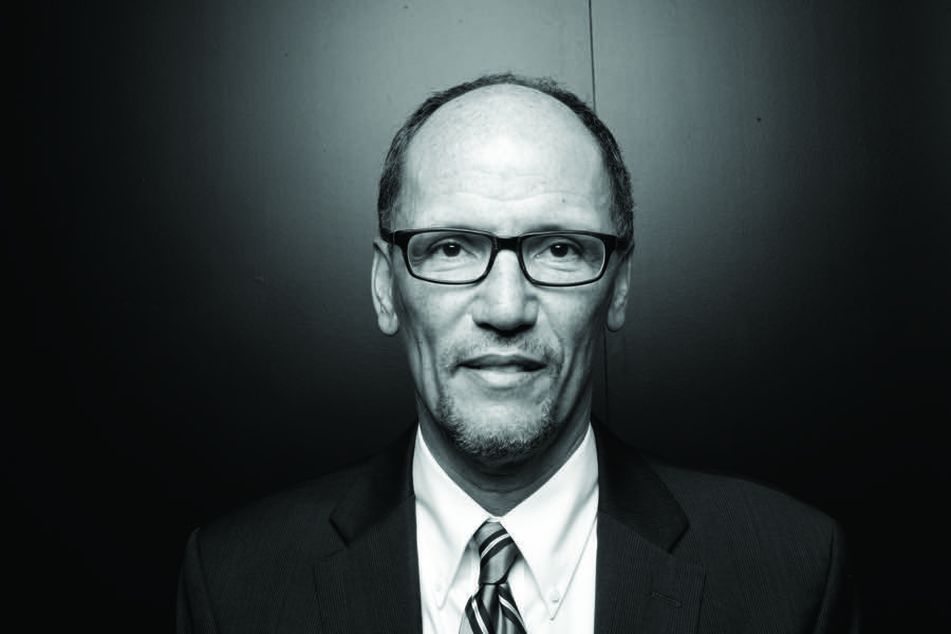Labor Secretary Thomas Perez gets high marks for guiding the fiduciary rule through the regulatory shoals

Thomas Perez gets high marks for guiding the fiduciary rule through the regulatory shoals, but supporters question whether he gave away too much.(More coverage: Everything you need to know on the DOL fiduciary rule)
When Labor Secretary Thomas Perez last week rolled out the final version of a regulation that would raise investment advice standards for retirement accounts, he achieved a major milestone for a measure that was first proposed nearly six years ago.
For the first time, investment advisers and brokers will have to adhere to the same fiduciary requirement — acting in the client’s best interests — at least when working with 401(k) and individual retirement accounts.
While some industry groups that had strongly opposed the DOL fiduciary rule say they are still studying it, others that had supported it criticized Mr. Perez for making too many revisions in an attempt to appease the opposition. Some observers gave the secretary credit for pushing the historic rule across the finish line, something the Securities and Exchange Commission has not been able to do.
“They got something off the launchpad that we’ve been waiting decades to see, which is a more balanced way of handling personalized investment advice,” said Kurt Schacht, managing director of the CFA Institute. “Hats off to DOL. No one else has been able to move the needle on that.”
(More: Coverage of the DOL rule from every angle)
BLASTED BY CRITICS
Congressional opposition has remained resolute. House Speaker Paul Ryan, R-Wis., and Senate Majority Leader Mitch McConnell, R-Ky., both immediately lambasted it and vowed to try to halt it. Although most financial industry trade groups say they are still studying it, they also continue to be wary of what they call a complex and costly rule.
Mr. Perez promised skeptics that the final rule would address concerns raised about the proposal — introduced in April of last year — in more than 3,000 comment letters, 100 DOL meetings and four days of public hearings.
Read my statement on the release of the #fiduciary rule: https://t.co/kqe3X6DN8V pic.twitter.com/hK5FACnxwQ
— Paul Ryan (@SpeakerRyan) April 6, 2016
Indeed, the final version — a 1,023-page rule — was significantly revised, including a reworking of its centerpiece, the best interest contract exemption. The exemption allows brokers, who currently only have to meet a suitability standard in recommending investments, latitude in their compensation arrangements, including charging commissions or taking revenue sharing, as long as they sign a legally binding document that obligates them to put their clients’ needs above their own.
Mr. Perez said last week that the DOL made the rule “more workable and doable.”
“We listened, we learned and we adjusted,” he said. “I am quite confident industry will be able to comply with the streamlined rule.”
(Related read: Perez expresses confidence final rule will survive opposition)
Ed Gjertsen, vice president of Mack Investment Securities, a hybrid advisory firm, and chairman of the Financial Planning Association, said the DOL realized the regulation would have to be effective in today’s diverse advice marketplace.
“It appears that the Department of Labor took industry guidance to heart. It made the rule more practical,” he said. “It looks like they did a pretty good job.”
An advocate who testified before Congress in favor of the rule, Scott Puritz, managing director of Rebalance IRA, an RIA firm, also was pleased with the way that DOL was able to promulgate a fiduciary standard while taking into consideration the way advice is dispensed today.
“It was very masterful and artful in striking that balance,” Mr. Puritz said.
Some critics say Mr. Perez went too far in accommodating critics’ demands for changes to the rule.
“I think they chickened out,” said Eric Bishoff, president and chief executive of The Bishoff Financial Group, a hybrid advisory firm. “The establishment in the financial services world spoke up and swayed the intent of that rule to allow large companies to make money the way they have in the past. The teeth that were in there to give quality information to the individual investor were whittled down.”
COMPETING PRESSURES
Daniel Bernstein, chief compliance counsel at MarketCounsel, a compliance consulting firm, said he’s not sure that Mr. Perez “could have gotten it right,” considering the competing pressures he was facing.
“I’m not sure whether the changes are going to be good for investors or for the industry,” Mr. Bernstein said. “They split the baby on a number of them.”
Mr. Perez realized that securing a final fiduciary rule depended more on achieving political support — especially from wavering congressional Democrats who were listening to industry misgivings — through a responsive regulatory process than it did on crafting a perfect fiduciary rule.
DECLARES VICTORY
Mr. Perez said the rule is a victory for everyday workers and retirees.
“With the finalization of this rule, we are putting in place a fundamental principle of consumer protection into the retirement landscape: A consumer’s best interest must come before an adviser’s financial interest,” he said. “This is a huge win for the middle class.”
One adviser said the best interest contract gives investors a powerful new weapon to ensure they are not mistreated when they seek investment guidance.
“The consumer is now armed with something that will hold up in court,” said Peter Lazaroff, director of investment research and wealth manager at Plancorp, an RIA.
It will take a while for advocates and opponents to wade through the details of the rule and decide whether they’re maintaining their positions.
More importantly, it may be some time before the impact of the rule on the advice market can be determined. But several practitioners are optimistic.
“If the rule is able to withstand the challenges that are still threatened, it’s going to make a fundamental change in the way personalized financial advice is delivered,” Mr. Gjertsen said.
The rule will result in a decline in the popularity of expensive investment products, such as actively managed mutual funds, variable annuities and non-traded real estate investment trusts, according to Mr. Puritz.
“It’s going to be pro-consumer,” Mr. Puritz said. “There’s going to be a dramatic reduction in advisers’ recommendations for heavily commissioned products. Shining a bright spotlight on the corrosive impact of high fees and conflicted advice will arm consumers with more information to make better buying decisions.”
PRICEY INSURANCE CURBED
Although he is disappointed the rule was “watered down,” Mr. Bishoff said it still will curb the sales of pricey insurance products. The rule requires the use of the best interest contract for variable and fixed indexed annuities.
“Some product providers won’t be able to count on the sales forces that have distributed their product,” Mr. Bishoff said. “That will primarily hit the insurance-agent side of the industry.”
One of the consequences of raising the advice standard, however: It is likely to make getting it more expensive for investors, according to Mr. Bernstein.
“The advice should get better,” he said. “The question is whether it is attainable and cost effective for investors.”
Mr. Schacht said it’s too early to tell how the DOL rule will affect advice. He said requiring advisers to act in their clients’ best interests is “good public policy.”
“Whether the Department of Labor has nailed the architecture remains to be seen,” Mr. Schacht said.
INFLUENCE ON SEC
Regardless of its effect on the advice sector, the DOL rule could have influence in the Washington regulatory community. After receiving authority in the Dodd-Frank financial reform law to promulgate a uniform fiduciary rule six years ago, the Securities and Exchange Commission has yet to move on such an initiative.
“It may pave the way for the SEC to implement a broader fiduciary standard,” Mr. Gjertsen said.
But first the DOL fiduciary rule has to survive a pending barrage of threats, including legislation to halt it and lawsuits. If it remains standing after those assaults, it will be another tribute to Mr. Perez’s ability to design a measure that incorporates many perspectives while still delivering on its essential promise.
The winners and losers of the DOL fiduciary rule
Learn more about reprints and licensing for this article.








